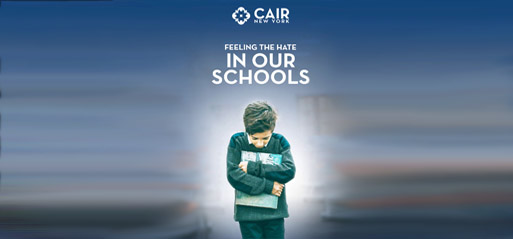
Elham Asaad Buaras
Three in five (nearly 60%) of Muslim students in New York have endured bullying, with a distressing surge in incidents following the recent conflicts in Gaza, according to a comprehensive report released on September 12.
The study, conducted by the Council on American-Islamic Relations-New York branch (CAIR-NY) and based on a survey of 500 Muslim students, with 91.7% attending public schools, 4.6% in charter schools, and 3.8% in non-Islamic private schools, paints a bleak picture of the school experience for Muslim students in New York.
According to the report, titled *Feeling the Hate in Our Schools*, “58.2% of Muslim students reported being bullied by their peers because of their religion.”
The impact is particularly severe for schoolgirls who wear hijabs, with 44.7% of these students experiencing their hijabs being tugged, pulled, or touched inappropriately at varying frequencies—from rarely to very often.
Moreover, the study found that “64% of students have witnessed a Muslim peer being bullied by another student,” while nearly 65% have seen their schools make derogatory comments or posts about Islam or Muslims online.
Many students feel disillusioned about reporting such incidents, with “43.6%” believing it would be futile. The study revealed that “74.6% of students did not report their bullying experiences to an adult at school.”
The report also addresses the broader context of rising hostility linked to the Palestine conflict. It notes a significant surge in “anti-Muslim, anti-Arab, and anti-Palestinian sentiment” within New York City since October 2023.
“In 2023 alone, CAIR-NY received 555 requests for legal assistance, with 43% directly connected to Palestinian solidarity, highlighting the urgency of the situation,” the report elaborates.
Additionally, the study uncovers that “32% of students felt silenced by their schools when expressing views on Palestine,” while “13% faced unwanted attention from staff,” “11% from authorities,” “10% encountered online harassment or doxing,” and “9.5% experienced social isolation.”